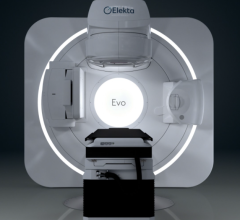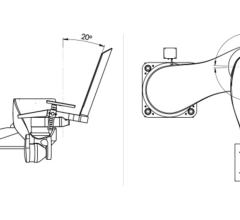August 29, 2007 — Roche Diagnostics said the U.S. Food and Drug Administration approved its biologics license for a test for direct detection of West Nile virus in donated human blood and plasma.
West Nile virus, which can cause serious health issues, is transmitted to humans most often through mosquito bites, but can also less commonly be transmitted by transfusion of infected blood or blood products. The test, called the cobas TaqScreen West Nile Virus Test, enables detection of the virus earlier in the infection cycle in donors who may show no symptoms of disease. According to the CDC, blood screening centers across the U.S. identified 340 donors whose blood tested positive for West Nile virus in 2006, and 23 to date in 2007.
"We are pleased to offer U.S. blood banks a new choice for both maximizing blood safety and optimizing efficiency," said Daniel O'Day, head of Roche Molecular Diagnostics which developed the test. "The Roche test, run under an investigational new drug application by 14 clinical trial sites testing blood from a network of more than a 100 donation centers, helps blood banks streamline workflow and improve test results accuracy with reduced hands-on time, ready-to-use reagents, and full automation of each step."
The test is designed to run on the cobas s 201 system, Roche's flexible, modular instrument platform, which automates each step of the real-time PCR blood screening process. The test uses Roche's highly sensitive polymerase chain reaction technology (PCR), a nucleic acid amplification technology, to detect the genetic material of the West Nile virus directly in blood. The CDC has stated that screening donated blood for West Nile virus by nucleic acid amplification tests has markedly reduced the risk of transfusion transmission.
Most people infected with West Nile Virus never show signs of illness, or they only experience several days of flu-like symptoms. Others, especially those with compromised immune systems, can suffer serious, and in some cases, life threatening reactions. In 2002, the CDC says transfusion-associated transmission (TAT) of West Nile virus infection acquired through blood transfusion marked the emergence of a new threat to the U.S. blood supply. Although mosquito-borne transmission remains the predominant mode of West Nile transmission, identification of TAT underscored the need for screening of donated blood for the virus. In June 2003, blood-collection agencies implemented investigational West Nile nucleic acid-amplification tests (NATs) to screen all blood donations and identify potentially infectious donations for quarantine and retrieval. This screening was performed on approximately 6 million units during June-December 2003, resulting in the removal of at least 818 West Nile contaminated blood donations from the blood supply in 2003 alone.
For more information: www.roche.com


 June 14, 2024
June 14, 2024 









